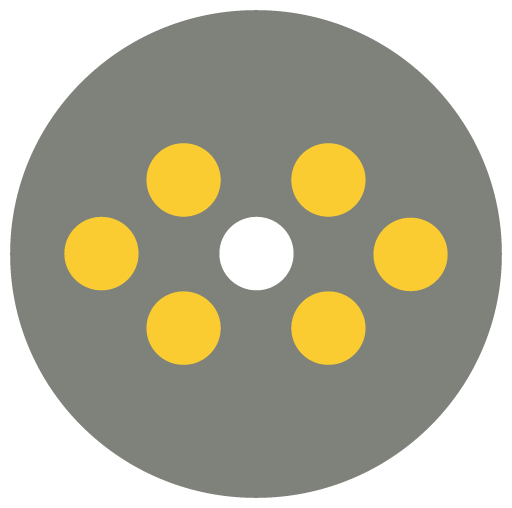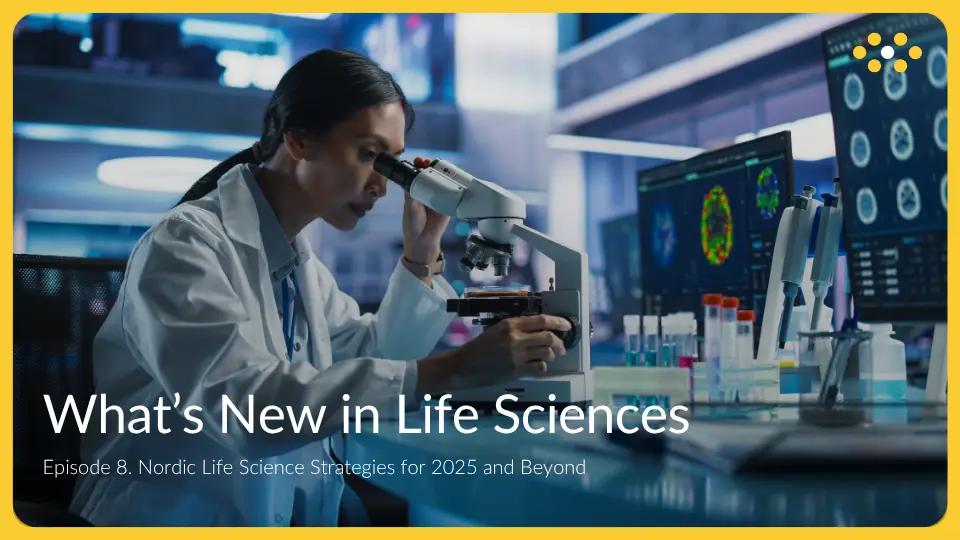Are you looking for specialists who can help improve your business and reach your targets? Most sectors we work within now have skills shortages with candidate driven markets, where the best people have increased choice and are highly sought after. That means that you have to make your recruiting method perfect. To find your perfect candidate, you must write an appealing job vacancy, screen every candidate and conduct various interviews.
There is only really one bad outcome from a job interview: that you hire the wrong person for the job. But there are lots of things you can do to enhance your process and maximise your chances of making an exceptional hire along the way.
In the following extensive guide, Amoria Bond offers you professional advice which is based on many years of helping our clients to hire the best people and our candidates to secure their dream jobs. The guide begins with the preparation, continues with what you should do during an interview and after, and finishes with the interview process of Amoria Bond.
1. Before the interview
Preparation is the key to success and therefore you should check all the following points in order to find your perfect candidate. In the next section we will point out the recruiting process before the actual interview.
What kind of employee do you want?
Do you know what you want?
Sound’s a silly question...right? Well actually, no. In practice, while most interviewers will bring a clear understanding of the type of skills they need and the right attitude and aptitude for the company, many don’t think enough about aspects like:
- How do you prepare for challenging candidate questions that could swing their view of the company and opportunity?
- Is your potential hire the right cultural fit? How will they get on with other team members?
- Does the individual’s career aspirations match with your company’s goals?
- How can you tackle questions about salary and benefits?
Is the job description as good as it can be?
If you read your job description…. would it inspire you to apply? If you were to read it with no prior knowledge of your business or ethos…. would it make sense to you? In order to attract the right people, it’s vital that your advert to the world presents you in your most accurate and brightest light. Without the right job description, would it be fair to expect a candidate to know enough about what they are getting themselves into...before you bombard them with your most challenging questions?
If it’s already out there. Make sure that everyone who is taking part in the interview understands the job description too. Ask someone who is not so intimately involved in the process to read the description and second-guess any questions that it may lead to. When your interviewers have a solid job description, they can base their questions around it and get the right answers.
Be careful with first impressions
These days most of us have access to the Internet. There are a thousand and one articles out there with titles like “how to wow your future boss with a winning first impression!” So, while someone may have perfected the look, the handshake and the dazzling smile…. remember, fools rush in!
The best way to make sure you are not led astray, is to do your homework. This means more than just getting to know your candidate’s CV, or taking the word of a colleague who has referred them. These days the social media world means that most candidates will have a digital history that should be checked across a variety of sites from LinkedIn to Facebook, Twitter and more. You can even hire companies to do more comprehensive studies on your behalf.
Get to know your candidate’s CV
You’re busy, it’s the fifth interview you’ve done this week and you like the look of the other person a LOT more! But you need to look at each, and every, encounter as a chance to make a great hire. A chance to find out what makes your target market tick and an opportunity to present your brand positively.
If you agree to an interview, take the time to read the candidate’s CV. It's the respectful thing to do and can guide the process positively. Empowering you to delve deeper into your potential hire’s career path. And if that candidate is claiming to have extensive knowledge of your industry, it’s the perfect opportunity to check they have walked their talk.
What info should you give a candidate pre-interview?
Whether your company is already well known or not, the marketing material you create can have a huge impact upon a candidate’s perception of your organisation. The corporations and larger companies spend a small fortune on their brand and use every opportunity to promote it. Smaller companies can’t compete with such marketing spend - but you can still produce a powerful summary on a budget.
Although you shouldn’t give away the answers, you should still provide every interviewee with some fundamental information about what you do, and why you do it. It will help them to prepare for the interview and understand your culture a little better. Hopefully it will also inspire them to give their best performance in the interview.
Essential information to include:
- Description of the interview process and expected timelines
- Names and roles of the interviewers at each round
- Ambitions of each interview
- Description of the company
- Values and goals of the company
Put your potential hire at ease - if you don’t expect them to dig out their best suit, let them know you take a more casual approach. If it’s a face-to-face interview, offer directions and parking suggestions if helpful. Anything you can do to take the hassle out of the big day will improve your candidate experience and encourage a better interview response.
Whatever you do, make sure your hiring managers and HR professionals aren’t sending potential recruits to external websites for information on how to prepare! This makes you look unprofessional and weakens your brand. It is far better to prepare guidance internally and send it to the candidate before you meet.

How does Amoria Bond inform candidates?
Because we value good communication and preparation, we have made a thorough location-focused information brochure about Amoria Bond that we send before an interview. In this brochure candidates can find our goals, markets, benefits, locations, etc. This way interviewees can prepare themselves better and understand what we stand for and who we are searching for. It spares recruiters time, but the company brand is also communicated in a professional, clear and uniform way, a win-win situation.
Besides the brochure, Amoria Bond uses multiple communication ways in order to maintain good contact with potential employees, such as tailored emails. As well as creating tailored emails to keep our candidates informed, at Amoria Bond we go the extra mile to attract good people. Every pre-screened candidate receives several phone calls along the way and we have a structured process that ensures that every applicant is kept fully informed at every stage.
Who should be on your interview panel?
Think carefully about the mix of people you have on your interview panel. Companies tend to opt for two or three representatives and, the people you choose to front your organisation, will have a big impact upon a candidate’s decision to join, or not.
As well as including the person who would manage the potential hire, it’s a good idea to include someone who knows the demands of the job well. At Amoria Bond, during the third stage interview, we tend to include a senior staff member in a directorship role. Preferably someone who started out as a rookie before rising through the ranks. This is a powerful indicator to the candidate that success is possible and that they have an opportunity to build a career with us.
Where should you conduct your interview process?
The location of an interview has a huge impact on its quality and therefore you should pay attention to where you want to sit. The next question you should ask yourself is: Will it be a face-to-face interview or online?
When face-to-face interviewing, make sure you book a comfortable and professional meeting space that is large enough for all participants. Double check the room availability on the day and make sure any technical kit you will rely on is working smoothly.
If you are remote interviewing from home, then you want your space to look as professional as possible. Consider the most appropriate setting. Don’t leave unwashed dishes in the background or hang your underwear on the door handle behind you! These days you can download some great filtered backgrounds that keep your face in focus, while blurring out the background details. You can even create a mock office environment, complete with company branding. A nice touch when the candidate can’t visit your HQ.
Once you have found your space, make sure all of your guests have been invited and have accepted the link to the software you have chosen (or face to face) and block out the time accordingly.
Reserve your room with ample time. You don’t want to keep your candidate waiting while you beg Geoff from accounts to relinquish the room he booked a fortnight ago!
What type of technology is best for online interviewing?
There are many different video conferencing facilities available. In the main they perform much the same purpose, but there are subtle differences and technicalities that you may find you prefer. Popular right now are facilities such as Microsoft Teams and Zoom, but companies are also making important calls with everything from Whatsapp through to Skype and WebEx.
Think about your company’s privacy policy when setting up your interview. If you are going to share any confidential information, make sure that your interviewee isn’t planning on setting up space in an internet cafe or using public Wi-Fi. It’s common sense stuff, but you’d be surprised just how often these issues are encountered.
How should you prepare for a remote interview?
Make sure your candidates have the right technology to take part in the interview. Send a friendly email giving them an idea of what will be involved in the interview and how long it will take. If you are using software that the candidate is unfamiliar with, it wouldn't hurt to provide them with some basic instructions. And recommend that your interviewee tests out the connection with a friend some time before the call.
You should also do the same at the office or at your home. Test your IT systems and electronics regularly. If you have an important interview lined up, it’s a good idea to check your connection by connecting with colleagues before it starts. A mock interview using the conferencing facilities you have chosen, and a helpful colleague is a wise step.
Make sure you have a back-up plan, when facing technical issues. If the Internet connection goes down, what will you do? The logical step would be a phone interview, so make sure you have the phone number of your candidate to hand. Let them know that this is the plan before you speak and provide a direct access phone number to the interviewer, just in case they get cut off.

2. During the interview
What do you need to keep in mind during an interview and what is allowed and what not? You represent your company, and your behaviour and method should reflect the values of that company. In this section you will read how you can conduct the interview the best way possible.
Is there a particular way to behave as an interviewer?
While a sense of professionalism should underpin everything you do, and most hiring managers follow a fairly standard model, interview style can still vary wildly. This is often driven by the size of the company and the industry. In the larger companies there is typically a more standardised approach to interviewing. In the smaller, family-owned businesses it is still not uncommon to find managers asking you which animal you would like to be and why - or what is your favourite way to cook mushrooms!
You want to demonstrate to your candidates that they can be free to express their personality. While maintaining a friendly yet professional demeanour that helps them to relax.
How much information should you give a client during interviews?
There is no right or wrong answer to this. Sometimes a candidate will ask you everything you know about your business; other times they have already done their homework. Even with the information brochure, it doesn’t hurt to mention what your company stands for. There are a few basics that you may want to consider:
- Company values and mission statement
- Brief company history
- Explanation of company ownership and structure
- Explain the job requirements and run through the responsibilities
- Explanation of the management and reporting structure
- Explanation of the team the candidate would join and its purpose
- Overview of exciting projects the team is working on
- Opportunities for career growth
- Introduction to your company’s CSR and D&I efforts
- Salary expectations or contract rates and terms (if at appropriate for interview stage)
- Explanation of the feedback process and next stage(s)
Should you take notes?
Note taking is helpful after the event, but it can get in the way of the flow of the conversation too. You can get around this by using a separate person to write them for you. But if you can’t avoid it, make sure you don’t over rely on your pen and pad.
Should you use a scoring system?
Struggle to remember which candidate said the best things about the stuff that’s important to your business? A scoring system offers a helpful way of comparing people and enhancing the efficacy of your recruitment process.
Yes, score cards can be distracting and get in the way of a free-flowing interview if you’re not careful. Trying to engage in conversation and write notes can be tricky and reduce helpful eye contact. This can have an impact on your ability to read a candidate’s body language and make the interviewee feel uncomfortable.
But if you learn to use them efficiently - or delegate to a dedicated note taker, they will enable you to compare responses after the interviews have taken place. This is particularly useful when you have to evaluate the responses of several potential hires.
What does a scoring system look like?
Decided that a scoring approach is the right for your organisation? There are a few methods to consider. You could go for a simple yes/no, question and answer format...does the candidate offer strong evidence? Does the answer inspire your confidence in the candidate’s ability to do the job?
Taking things a step further, you could consider a 1-5 scoring system, such as the following:
- 0 points - shoddy response with no useful information offered and no examples provided
- 1 point - poor response with few relevant points made or related experience offered
- 2 points - a considered response with some good points made and examples given
- 3 points - a good response with relevant examples and well-explained experience
- 4 points - an excellent response, strongly communicated with great points made
- 5 points - a flawless response that convinces you they know what they are talking about and can back it up with highly relevant and appropriate experience examples.
Money talks. But should you talk about it?
Interviews are time consuming. And it’s a waste of time for all involved if a candidate is out of your price range. Some companies have been known to interview people they cannot afford just to get an idea of what is available beyond their budget. But that just isn’t respectful, it’s much better to speak to people who know and are happy with your salary expectations!
It’s popular these days to present a salary range, rather than a single figure. When Amoria Bond’s recruitment consultants work on a client’s role, we become intimate with their budget and can guide them on whether the depth of their pockets matches the aspirations of their job description. We know how much a hiring manager is willing to pay for the right person and we will only present candidates who are happy with the money being offered.
If you want to find the best people, you can afford then be honest and upfront with your offer. And if you don’t know how much a candidate is seeking…. ask them during your pre-screening calls and avoid any awkward later conversations altogether!
Should you record the interview?
There may be situations in which it’s acceptable, but in the main, recording interviews should be avoided. As well as putting extra pressure on the candidate, there is also the sensitive nature of some conversations to consider. It’s typical that a candidate will have some experience of the industry their interviewer works in, and often company information is discussed in answering competency based questions.

3. After the interview
Be fair - follow-up!
We are all busy. But it’s important that you give your candidates prompt interview feedback. If you are interested in hiring them then slow decision making will risk you losing out to a leaner rival. And if you don’t feel the candidate is right for your company and team...put them out of their misery quickly so that they can refocus their job search. Be respectful - keep your interviewees fully informed throughout the process.
Some companies have email templates prepared to update a candidate at all stages of the interview. But if a person has invested their time in interviewing with you, it’s a lot nicer to pick up the phone with any news.
Summary
- We hope that this guide will help you find the perfect candidate for the job within your company. It’s quite a lot to consider, so you can read here a summary of the most important aspects to keep in mind when preparing an interview
- Know what you are looking for in an employee
- Do your homework and screen your candidate
- Read the CV before the interview
- Give the candidate a brochure with fundamental information
- Consider who will be on your interview panel
- Think about your interview location
- Be professional during an interview, but don’t be stiff
- Repeat fundamental information during the interview
- Let someone else take notes
- Use a scoring system
- Mention the salary range of the job
- Don’t record the interview
- Give the candidate prompt interview feedback

Work with Amoria Bond to improve your recruitment process
If you are looking to hire new staff and need support throughout your recruitment process, don't hesitate to contact us. We will be happy to tell you more about our specialised recruitment services and how we can help you further improve your interview and application procedures.






